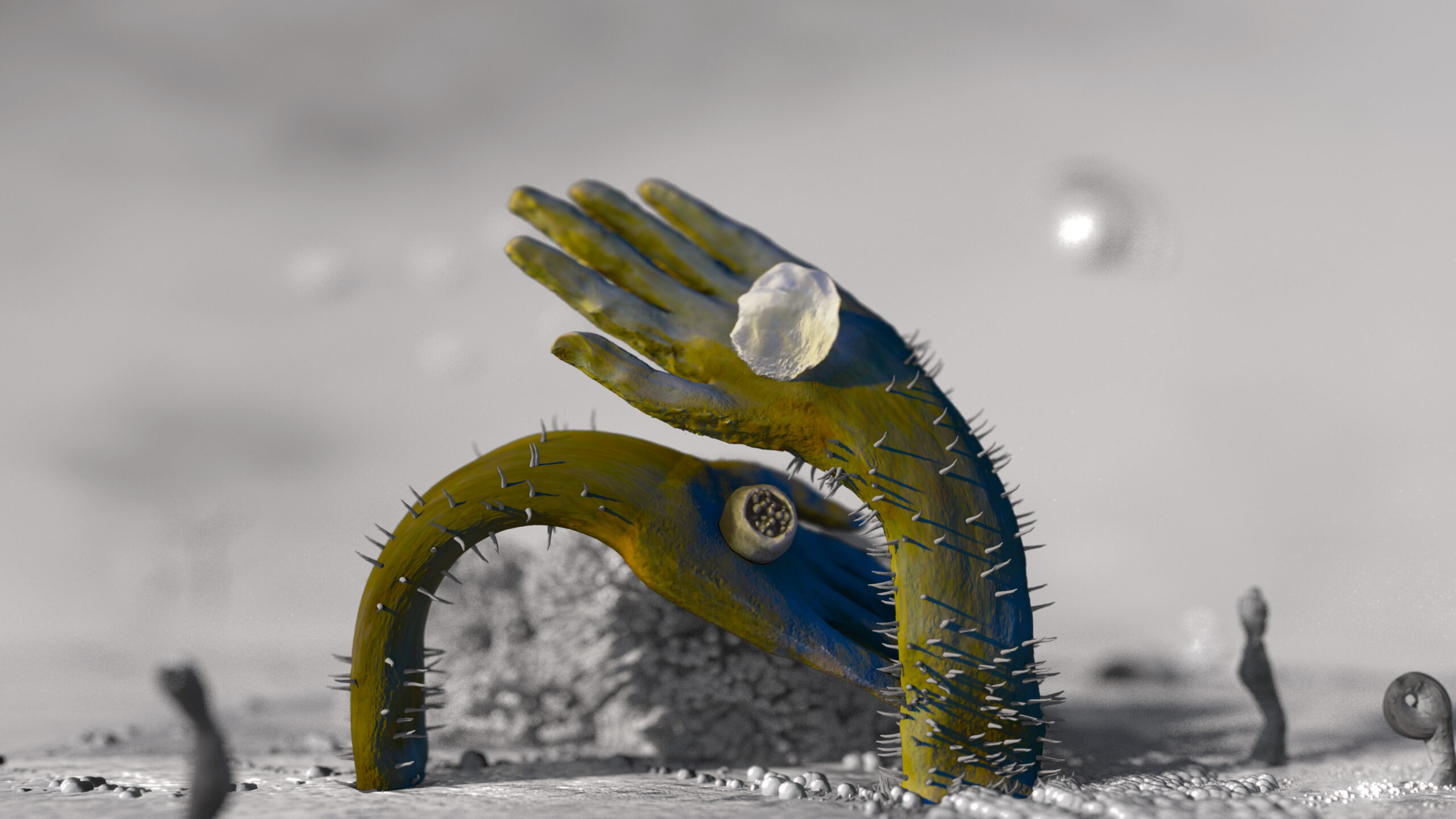Kinnomics: Iman Datoo
Co-presented by Festival of Live Digital Art (FOLDA) and Agnes Etherington Art Centre
How can artwork embedded in one ecosystem find kinship in a new ecosystem? In Iman Datoo’s solo exhibition combining digital claymation, sound installation and augmented reality, an intriguing narrative takes root between the potato and its local cousins. The Queen’s University Biological Station (QUBS) main field site, where Iman Datoo is Stonecroft Artist-in-Residence, is located on Opinicon lake, which possibly takes its name from the Ojibwe word for potato. Opin likely refers to the shallow water tubers variously known as duck potato, katniss, wapato, or arrowhead. Datoo invents “kinnomics,” naming a broad set of trans-disciplinary approaches to moving between ecologies while listening and learning different value systems. “Kinnomics” signals a shift from matters of economics (management of the house, oikonomikos) to methods of making kin.
About the Artist
Iman Datoo (b.1995) is a multidisciplinary artist living and working in South Devon. Her practice brings together botany and cartography within the spatial environments of stories to consider forces of agency, liveness, and animacy between plants, soils, and people.
Language, whether visual, spoken or intuited, serves as Iman’s primary tool to disturb and open pathways towards more-than-human worlds. She is interested in what it means to reorient ourselves around invisibilised bodies, inhabit them and readjust to their methods of rooting and re-routing. Through dialogue with scientists and academics, her work examines hierarchical relationships in natural history and plant science, considering intimacy and embodiment not only as affects, but also as modes of inquiry. As an artist trained in architecture, she often composes in hybrid and time-based media including sculpture, film, painting and drawing.
Recent works include Movement is Natural (2024), a film on the dynamics of human and nonhuman agency within Cornwall’s mining soils; Soil-Brain, Gut-Brain (2023), an audio-tactile installation exploring soil erosion through the lens of eating, digestion, and nourishment; Kinnomic Botany (2020–22), a film tracing the migratory epistemologies of the potato; and Making a Name (2022), a participatory performance renaming the vegetal world through touch, imagination, and play.
She has exhibited across the South-West and internationally, including at Grays Wharf Gallery (2024), Southcombe Barn (2024), The Eden Project (2022–23), KARST (2023), The Plumb, Toronto (2023), and Drugo More Gallery, Rijeka (2021). She has led workshops and performances at institutions such as Newlyn Art Gallery, the Natural History Museum, Counterpoint Arts, Cambridge University, and Tate Britain. From 2022–23, she was Artist-in-Residence at The Eden Project and the University of Exeter’s Environment & Sustainability Institute on ‘Making Kin With Soil’.
Iman is currently collaborating with Radical Ecology on a project with Natural England focused on nature recovery in post-plantation ecosystems. This work reimagines forestry through the lens of local ownership and care, probing the intersections of capitalist value systems and deep ecology to envision how we might live as co-creators with the land.
Credits
Curated by Paula Antonakos-Boswell, Maeva Baldassarra, Baiqing Audrey Chen, Sasza Hinton, Seymour Irons, Sana Kazemirashid, Nicola Koroknay, Murphy Liu, Andrea Malus, Andy O’Neil, Sam Sunwoo, Andrei Pora, and Haofan Wang with coordinating curator Sunny Kerr, through Screen Cultures and Curatorial Studies 830.
Acknowledgements
Funding is generously provided by FOLDA, the Stonecroft Foundation for the Arts, Queen’s University Brockington Visitorship, Canada Council for the Arts, Queen’s University Biological Station

